Yup, that’s me, bedridden as of two days ago, with an unbelievably painful sciatica. So I’m eating at the trough, here enjoying a Pad Thai and glass of wine brought over by good friends last night. Being stuck in bed has allowed me to put the laptop on my lap (of all places!) and finish the last pass through Nowtopia, and catch up on lots of net surfing.
Last weekend I went to Atlanta with Adriana to visit some old friends of hers. I can’t say I fell in love with Atlanta, which is about as unlovable an urban space as I can remember visiting. Still, we managed to make it an interesting 3 days. I read an article on Tomgram a couple of weeks ago, about the remarkably severe drought in the southeast. But as you can see in his piece, there are severe droughts going on in many places around the world, and we’re having a lot of trouble as human society wrapping our heads around the unfolding collapse of modern life. I cite and quote another article below that is even more thorough at collecting the signals of irreversible physical collapse globally, but first let me show some pictures of Atlanta. Here’s a shot of their Olympic-inspired Centennial Park, right in downtown beneath the looming CNN world HQ (where we also took the tour, an 8-story descent through the CNN universe of 24/7 infotainment).
Apparently this brown lawn and the dry fountains around the park are symptoms of the severe drought. The governor of Georgia recently held a rally to pray for rain, which our hosts held in reasonable contempt, since there’s been very little practical preparation for coping with the water crisis. I recommend the Englehart piece cited above because he returns repeatedly to the basic question: what happens if the water runs out? No one wants to think about that. In some ways our entire global climate change crisis is similar, insofar as we just can’t imagine life as we know it changing in significant ways, and yet it’s clear that water and agricultural productivity are both in serious jeopardy in the coming years. I’ll come back to this below…
Here I am showing our gracious Atlanta hosts the cover of my forthcoming book “Nowtopia” with the DIY bikeshop Sopo Bicycle Co-op in the background:
And a couple of other images of the place. We went there because I wanted to show Rachel Spiewak the manuscript since I quoted her several times in the book…
We saw as much as we could of what Atlanta offers to visitors: CNN as I mentioned, but we also went to the MLK National Park, the Oakland cemetery (where a good bit of real estate is taken up with Confederate soldiers), the Cyclorama in Grant Park (a 9-ton circular panorama painting of the Battle of Atlanta in 1864, painted in the 1880s and originally planned as a campaign device for some guy running for Vice President in 1884…it’s also narrated to lament the “lost cause” of southern independence!), and lastly we went to the Atlanta History Center in Buckhead, the neighborhood that we were told was where trendy young people went to party… it turns out to be an anti-neighborhood, more of a financial district with a laughable 3-block long bike lane amidst glass box highrises. Here’s a shot of it:
We liked much better the walk from the MLK train stop to the Cyclorama which took us past the cemetery and the quaint (but freeway bisected) neighborhood of Grant Park. Here’s some shots of the cemetery and a lovely old house with a curving porch that really caught our eye… interesting to think of a world without air conditioning in which one survived muggy hot weather by passing time on breeze-enabled porches….
Here’s downtown in the distance behind the western entry to Oakland cemetery:
Confederate Dead:
Across the street from the Oakland cemetery, diners sit on the roof during unseasonably balmy 75-degree weather on December 8:
The MLK National Park is a wonderful exercise in hagiography, but in spite of the deification efforts, manages to include some compelling history among the exhibits in the museum, especially the video clips of civil rights movement confrontations. Here’s my sunset shot of the tomb of MLK and his wife, Coretta, which I guess passes as some kind of barely secular version of the tombs you find in European churches of wealthy church benefactors and former bishops:
I watched people in the train where they have TVs on every car running some kind of canned for-the-commuter news, weather and sports cycle, and they mostly tuned out except when the weather prognosis came on and heads snapped to, only to shake in disappointment when more sun and heat was predicted. It wasn’t clear that folks have really figured out how dire the water situation is there, but maybe their interest in weather reports indicated a basic awareness. I watched and heard a lot of intense cellphone conversations and text message sessions, more than I’ve ever seen around here.
Anyway, we had a nice visit to Atlanta, but I wouldn’t recommend it unless you have some ulterior motive for going there.
Ross Gelbspan has an essay on Grist.org “Beyond the Point of No Return,” (which I noticed at CommonDreams.org while surfing the net yesterday while laying on my back all day). The essay is a refreshingly honest look at the facts of climate change, how irreversible the trends are, how the political agendas that he himself has proposed over the past two decades, and those of the most visionary environmentalists are simply no longer adequate responses to what’s actually already happening. He still offers up a kind of global New Deal public works crash-rebuilding program as a way to knit together a new global commons around our best efforts to cope, but to say the least, it’s very daunting. Here are his concluding paragraphs:
The key to our survival as a civil species during an era of profound natural upheaval lies in an enhanced sense of community. If we maintain the fiction that we can thrive as isolated individuals, we will find ourselves at the same emotional dead end as the current crop of survivalists: an existence marked by defensiveness, mistrust, suspicion, and fear.
As nature washes away our resources, overwhelms our infrastructures, and splinters our political alignments, our survival will depend increasingly on our willingness to join together as a global community. As the former Argentine climate negotiator, Raul Estrada-Oyuela, said, “We are all adrift in the same boat — and there’s no way half the boat is going to sink.”
To keep ourselves afloat, we need to change the economic and political structures that determine how we behave. In this case, we need to elevate the ethic of cooperation over the deeply ingrained reflex of competition. We need to elevate our biological similarities over our geographical differences. We need, in the face of this oncoming onslaught, to reorganize our social structures to reflect our most humane collective aspirations.
There is no body of expertise — no authoritative answers — for this one. We are crossing a threshold into uncharted territory. And since there is no precedent to guide us, we are left with only our own hearts to consult, whatever courage we can muster, our instinctive dedication to a human future — and the intellectual integrity to look reality in the eye.
He’s done a good job of looking at reality in the eye. I am always interested in the bigger picture of ecology and politics. My earliest activism was in the 1970s anti-nuclear movement, and then I canvassed for Citizens for A Better Environment in 1978 (now it’s called Commmunities for a B.E.). I found it easy to get people interested in the issues at that time, but it was already clear that a certain overload and numbness was setting in. The doom-and-gloom chicken-little fear-mongering style of presenting environmental knowledge is really self-defeating, but it’s difficult to get people to pay attention to new information without somehow establishing that it is either going to make them happier or richer, or do them some kind of wrong. The latter is easier of course, when it comes to ecological problems.
I’ll conclude by posting this videoclip of some music stars singing against the refunding of nuclear power. Hard to believe, but then again, not THAT suprising, but the ecocidal dinosaurs who pass as our legislative representatives in the U.S. congress seem determined to subsidize the nuclear power industry, ostensibly because it’s “cleaner” than coal or oil!… sheesh, how fuckin’ stupid are people to fall for that one??
Picked up this video clip from (Narco News editor) Al Giordano’s new outlet, The Field, where he is covering the upcoming primaries. (I have to admit, I don’t understand why what happens in these primaries is particularly interesting, beyond the usual kind of interest that any competition can arouse…like a bowling championship, or TV poker tournaments)…













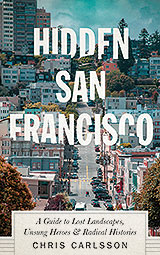
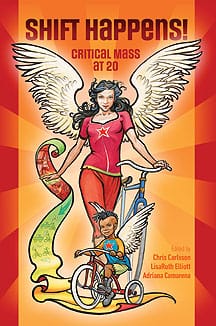
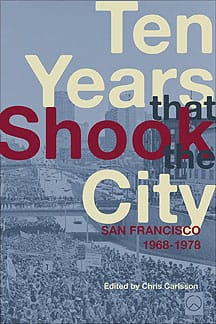
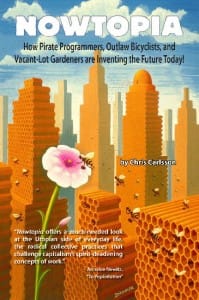
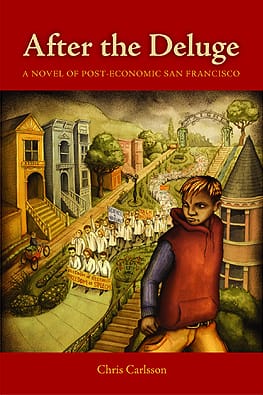
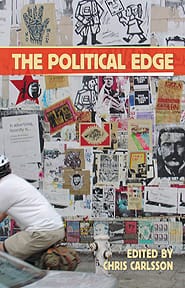
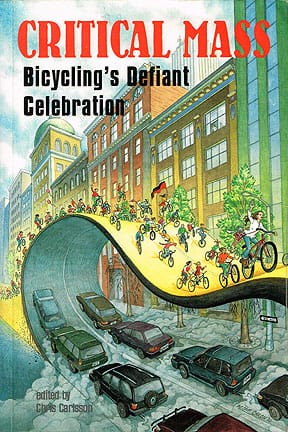
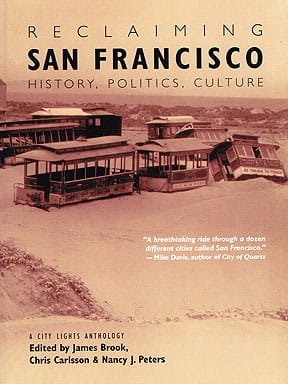
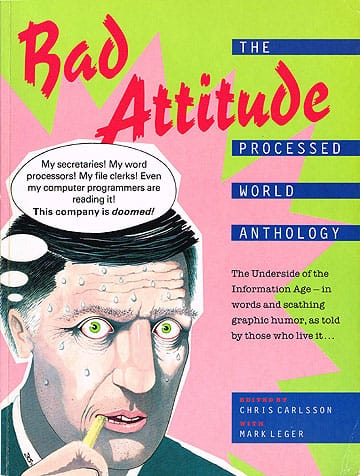

Leave a Reply